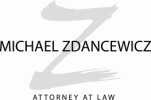 “But it’s my kids’ money!” This refrain may be common, but it’s not necessarily accurate when it comes to a debtor talking about money in a 529 College Savings Account. When the accounts are held “FBO” a child, courts are likely to find that money belongs to the debtor, not the child.
“But it’s my kids’ money!” This refrain may be common, but it’s not necessarily accurate when it comes to a debtor talking about money in a 529 College Savings Account. When the accounts are held “FBO” a child, courts are likely to find that money belongs to the debtor, not the child.
For example, in the case of Addison v. Seaver, the debtor claimed $22,000 in 529 accounts was owned by his children, not his bankruptcy estate. The bankruptcy trustee objected, and the bankruptcy court found that the 529 Accounts were property of the debtor’s bankruptcy estate. The Bankruptcy Appellate Court affirmed the ruling. The issue was then appealed to the United States Court of Appeals, where the debtor argued “that because he established the accounts for the benefit of his children, he had no legal or equitable interest in the accounts.”
The Court of Appeals reviewed Federal law regarding Section 529 Accounts, and found that the debtor was still listed as the owner of the account, and that his children were merely beneficiaries. The Court found that the owner is able to change the beneficiaries or request distributions from the account (subject to tax penalties) and, therefore, the funds remain the property of the owner of the account.
Amendments to the Bankruptcy Code provided exclusions for 529 Accounts, under certain circumstances, which restrict the inclusion of those funds as part of a bankruptcy estate. However, for the purposes of judgment collection, 529 Accounts are likely to be found to be property of the debtor. Dependent upon state-law exemptions, a creditor may be able to recover money held in 529 College Savings Accounts. An experienced attorney can help you discover if your debtor is holding funds in a 529 Account, and help you collect what you are owed.
The attorneys at Windtberg & Zdancewicz, PLC provide clients with experienced legal representation in all litigation and bankruptcy matters. We are experienced in creditor’s rights including garnishments, charging orders, attachment, property execution, trustee’s sales, foreclosures, judgments, judgment collection, domestication of foreign judgments, and creditor’s issues in bankruptcy cases. If you need assistance with your collection matters, please contact us at (480) 584-5660.
